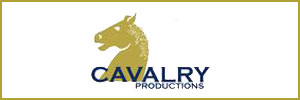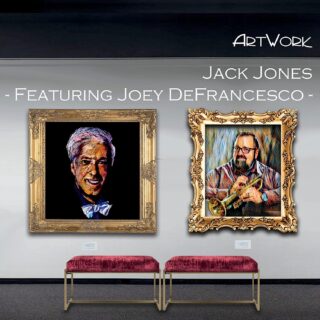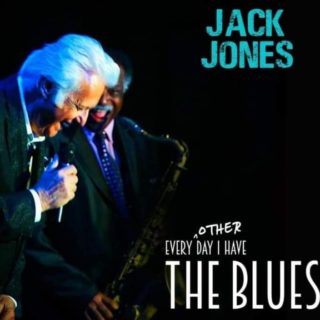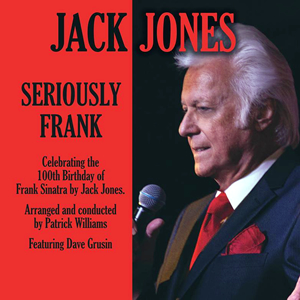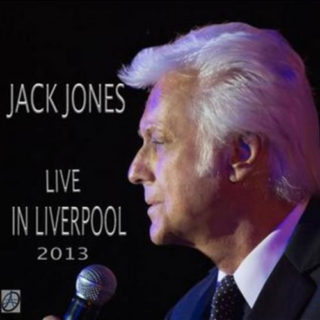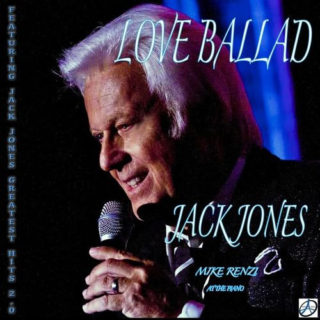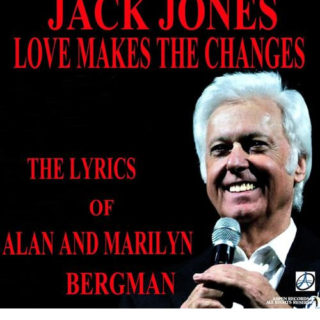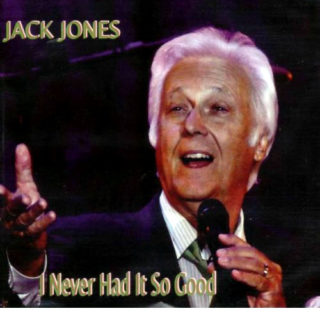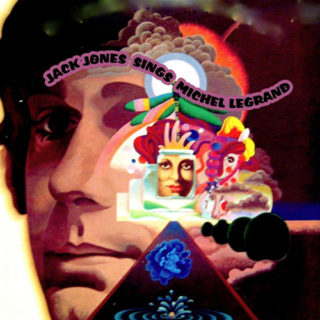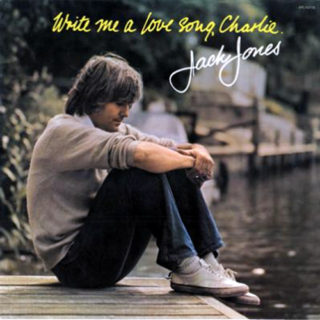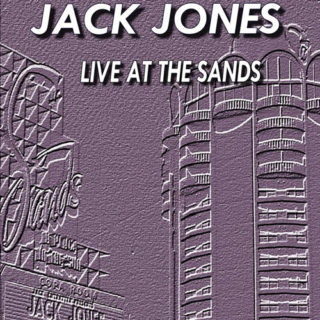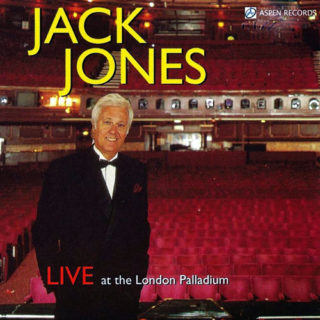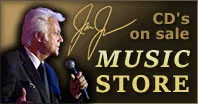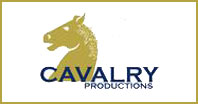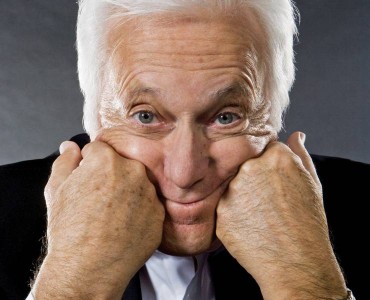
 Jack Jones made it big in the ’60s as the last of the great crooners, became an icon in the ’70s as the voice behind the theme song for The Love Boat and has cruised the world ever since singing to generations of fans. He docks at the Smith Center’s Cabaret Jazz Oct. 17-18, but checked in with Las Vegas Magazine’s Matt Kelemen in advance to talk fans, the Philippines and the golden voice that promises something for everyone.
Jack Jones made it big in the ’60s as the last of the great crooners, became an icon in the ’70s as the voice behind the theme song for The Love Boat and has cruised the world ever since singing to generations of fans. He docks at the Smith Center’s Cabaret Jazz Oct. 17-18, but checked in with Las Vegas Magazine’s Matt Kelemen in advance to talk fans, the Philippines and the golden voice that promises something for everyone.
You were pretty busy earlier this year with a well-received 11-date tour of the UK and Scotland. How did the shows look from the stage?
It was a wonderful tour. I’ve made so many of them and I know so many people over there—wonderful, dedicated fans. A lot of them make the whole trip. They book hotels and they make every show. You feel a little stale because you’re looking at a lot of the same faces in the front row. Fortunately they’ve done well in life where they can do that, and I love ’em for it.
I read forums about you. Your fans are very devoted.
I’ve been around a long time. I look forward to going back to the Philippines. I’ve been there so many times and I have so many friends over there. The last time I played the big venue, which is Araneta Coliseum. My first gig over there was when I was young, and I’ve been going back every few years ever since. Suddenly I noticed there were a lot of young kids in the audience singing along with my songs. I realized over there in the Philippines the families stay together, and when the kids grow up they bring the parents with them into their house. The parents bring all of their stuff, including Jack Jones records, and so they all know my music.
There were a few posts like that, in which fans describe growing up with your music. They’re a younger generation and they’re coming out to the shows now. You can’t ask for more as an entertainer.
It’s great.
I saw footage from a show in New Brighton and you were doing a bossa nova version of “The Love Boat Theme.”
That’s close to where last year we made … it was Liverpool. I have an album, Live at Liverpool, and that’s what I wished you could hear because it’s a finished album. We recorded it and then a guy in the audience was shooting high-def video, and he put it on YouTube. So I took it down from YouTube, and I used the parts where he was steadiest, and I have a thing called “Imagine/From a Distance” that I put together, the two songs together. I licensed some footage, and it became a comment on our global society. I used very little footage of my singing on stage, but it was very high def.
I saw that video.
It was interesting that in today’s technical market you can do that and it all syncs up, and the guy, he and I talked online, and he said “I was only going there because my dad wasn’t well enough to see the show and I wanted to shoot it for him.” And I said, “Well, it turned out to be quite something!”
As far as your voice goes, have you been really good to it or have you been fortunate that it’s been really good to you?
If I hadn’t stopped smoking about 40 years ago, I wouldn’t be singing let along being alive. It’s the worst thing you can do to your voice, so I’m very grateful that whatever it was that made me want to quit, that I went through with it.
The tour you just did was part of a Sinatra 100th birthday celebration, right?
Yeah, we had the big band and we had all the charts off of the album, which is Seriously Frank, and it was very well received. They really liked it because I hadn’t been over there with a big band for quite a while. We like to do the trio thing, which gives us a little more freedom, but it was really, really fun. We had a great time.
I got to hear it. It’s a great album.
Thank you.
I like your take on “It Was a Very Good Year.” Having it reference Sinatra in the third person made it feel like there was a connection between you rather than you interpreting the song.
I said to [arranger] Pat Williams, “There’s one song I know we can’t do, and that’s ‘My Way.’ I mean, we could have but it would have been absurd. ‘New York, New York’ was the other one. I said, “I’m wondering if we could do on ‘It Was a Very Good Year,’ and he called me back and said, “I think I have a way to do it.” I had said to him, “Can you demonstrate the different phases of Frank’s life?” and he said, “Yeah, I think I can do it.” I just loved it. I love what he did. It’s a jazz interpretation with some awful good musicians.
Pianist Dave Grusin appears on the recording to (on “Teach Me Tonight.” Grusin composed scores from The Graduate to The Goonies and won Oscar for The Milagro Beanfield War.) Did you ask him to work on the album or did you know from the get-go he’d be appearing on that song?
Pat Williams … they’re very friendly. He comes in from Santa Fe and plays on a session every once in a while just for the fun of it. So Pat said to me “I think Grusin’s coming in for this.” I said, “You gotta be kidding!” That was icing on the cake for me, yeah.
That must have been a great session.
If you’re a Grusin fan I have an old video around. I play it for friends once in a while. It was recorded to video at the Baked Potato in Hollywood, and the Grusin brothers (Dave and Don) at one point played dueling pianos. But it’s Phil Perry and all these wonderful girl singers and backup singers. It just goes on forever. It’s available somewhere.
I mostly know of him playing with Lee Ritenour.
Lee’s on there. Sheila E.
Is there a song on there that had more meaning for the both of you than others, as far as your personal relationship to Frank?
“I Guess I’ll Hang My Tears Out to Dry,” was one of them. He came to school and sang for us at assembly in honor of his daughter. That was a hell of a day at school I’ll tell you that. Nancy was a buddy of mine and she said, “Hey, come on down. My dad’s gonna sing.” I said, “What?” That was the day I decided I wanted to do that for the rest of my life.
Did that confirm it for you? You must have been thinking about becoming a singer before that.
Oh, sure. I was singing with my own group all over the place, and trying to get confidence. I was, but I didn’t know for sure that’s where I was gonna go. My parents didn’t want to really urge me to do that. They would rather I had studied law or medicine.
It wasn’t uncommon for show business people to steer their kids away from show business, was it?
For good reason. It’s a miserable business. Now with streaming, they’ve taken the potential of the singers, their cut of the deal.
It’s harder to make a living.
Downloading this stuff is one thing, and getting a portion of it, but when you stream the artist gets very, very little. And that’s the way it is. I have a quote for you: It’s not a good idea to quit mid-stream.
OK, that was good (laughs).
I never thought of that before. That just came out of my mouth.
How much Sinatra will you bringing to the Smith Center?
It should probably be called “Jack Jones sings Jack Jones” because it covers a lot of stuff that I’ve done in my life. We’ll have a few of the Sinatra pieces, and if you heard the last song on the album (“The Singer”), that song was written by [former Sinatra bandleader] Vinnie Falcone and Joe Cocuzzo. I got a review, oddly enough, in Smooth Jazz Magazine. The guy loved the album, and he said the best song in it was never sung by Sinatra. It’s the one about Sinatra. Joe Cocuzzo used to work for Rosemary Clooney. He was her drummer.
Will you be bringing the trio (pianist Christian Jacob, bassist Chris Colangelo, drummer Kendall Kay) to Cabaret Jazz?
Yeah, I’ll be bringing the trio and adding to it a little bit, maybe a surprise or two I have to clear with a friend of mine, but it’ll be a little tribute to my old buddy Joe Williams, whose widow is still alive and kicking. She’s doing great, and she’ll be there. It’s just going to be a lot of fun for me and I hope everybody else.
Cabaret Jazz will be a great room to hear you in. Have you been there before?
I’ve been there to see Clint (Holmes) quite often, and I think it’s a wonderful place. It isn’t like playing the casino. You’re not worrying about what the drop is and how many people, after they see your show, are going to gamble. They’re just dedicated to music, and I love watching Clint. I love watching the reaction of the audience. He’s my old friend. He’s the best.
I was a kid when you were known for the theme from The Love Boat, but I didn’t now until doing research for this interview that your dad [Allen Jones] hit it big in the Marx Brothers’ comeback films for MGM (A Night at the Opera, A Day at the Races) before you were born. Did you wind up having an affinity for the Marx Brothers?
I met them when I was a kid. I didn’t have the opportunity at the time to get to know them pretty well, but they used to take those movies on the road before they shot them. They’d fine-tune them and they’d come back and they’d shoot ’em. Now Harpo Marx’s son is one of my neighbors and is a wonderful pianist. We hang out all the time and we’re on the board for Act For MS, an MS organization we have here, and we sit around and talk about it all the time. When it comes on Turner Classic Movies we have a party and we put it on record, and we sit there and we talk so much we never see it. They’re wonderful movies. My father hit actual movie stardom in 1938, and that was because Jeanette McDonald and Nelson Eddy were together so much that MGM decided they wanted to break them up a little bit, and they didn’t have Nelson Eddy in it. They brought my father in, and it was called The Firefly. The song, “Donkey Serenade,” that was in that picture became a tremendous hit, and in those days the only thing that usurped it later on was “Hound Dog” by Elvis. Until then that was the biggest hit record you could have, and he recorded it the night that I was born in 1938. You’re taking to a fossil (laughs).
Right when he’s about to hit the high of his career he launches his son too.
And ironically he’d be rehearsing with his piano player and pick me up and give me a hug, and I would scream and beg to be released. “Get me away from that noise.”
I saw the scene in which he’s singing while riding a horse next to a coach going 30 miles per hour.
Yeah, and that was his horse Smokey, and he came down the canyon and caught his boot on a rock and broke his foot. And they had to keep shooting, and they had to keep doing it in stark pain.
You and your dad had an act at The Thunderbird in 1958. You and Wayne Newton were practically biologically destined to play Vegas.
I guess so. I don’t know if anyone showed you my video bio, but at the beginning of it there’s a shot of a newspaper in Las Vegas, and there was my father and I was underneath him for smaller billing. I got that clip from a friend of mine, a drummer, who was helping a guy refurbish a house, so they were digging under the floorboards and found this newspaper, and that was the newspaper from when my dad and I were playing the Thunderbird.
Wasn’t your mom part of it too?
Yeah, it was a family act for a short time. My mom did the Palladium with my dad when I was really little, and I did the voice of the donkey. They took a pony and put mule’s ears on it, and it came out and I did my voice backstage, said some words for the donkey. My dad and I had a family act. She wasn’t in it, but myself and my sister, who was married to the bass player, we went out on the road for a little while with that. Then I went totally on my own. It was spotty. I kept going back to the gas station. I don’t know if you know this story: In high school one of my jobs was gas station attendant, as well as plant nursery guy and whatever else we did. Golf-ball picker. After I graduated I went back to the gas station and I said “Look, I can’t quite make a living here. Can I have a part-time job?” And he was nice enough to give it to me. Then I made a record, and KMPC started playing it. The first time I heard it I was in the Palisades and I almost ran off the road. nOne day it was a beautiful June afternoon, and the guy came in with his top down, a little cocky, said “Can I get my tired rotated?” While I was wiping his windshield, my new record was playing on his radio, and I just couldn’t tell him (laughs).
It was only a few short years after that when you won a Grammy.
That’s nuts. It really is nuts. I went into the Air Force Reserve shortly after that. While I was on two weeks leave after active duty I went into the studio and made “Lollipops and Roses.” By the time I got out after six months of active duty, “Lollipops and Roses” was a hit. Then it won a Grammy in ’61.
Did you have advanced word that your “Lollipops and Roses” would be a Mad Men end-credit theme?
No, I heard that it had been. Someone said, “You’d better watch it,” and the producer of Mad Men, his parents were fans of mine. But it should have been in anyway. It was the same time and it was part of life then. The Grammys were done in New York, and it was just us. Tony Bennett and myself, and all of these performers. The public didn’t know what a Grammy was, and then I remember the second Grammy I won I was asked to sing the five nominated songs. So I did, and I got to … I had “Wives and Lovers” nominated, and I got to “I Want to Be Around,” Tony’s song, and I screwed up the lyric. In those days you could do that, and I said, “Hey Tony, come up here and finish this for me. I can’t remember the ending.” And he did. We did it together. That was a lot of fun.
There’s gotta be footage of that somewhere. I saw video of you singing with Andy Williams and you looked like brothers singing together.
Oh, wasn’t that fun? Then we decided to play at Branson at his place, and we had booked it for a year. It was going to be in September, and September was rolling around. He called me and asked, “Can you play my place? I’ll send a place and pick up your guys.” And I couldn’t, then we were supposed to play together and he was down. He was ill. And so I was there, and we had another act open the show, and while we were performing that week Andy passed away. Wonderful man. We were good friends and I had so much fun singing with him. We were like two little boys trying to out-sing each other.
He emanated a lack of showbiz ego.
Right. And you know, he and I both had hits with “Dear Heart.”
The episode of The Love Boat that you starred in with your dad is one of the more memorable episodes. I know it was 40 years ago but that must have been really special for you.
I wrote the story.
Did you write it and present it to them?
Yeah. I didn’t write the script. The son of a very famous writer/producer wrote the script. It was a festival of nepotism. It was actually based on a story he told me about … who was the star of M*A*S*H? Alan …
Alan Alda?
It supposedly happened to Robert Alda and Alan Alda. They were supposed to be doing something together, working together, and Alan pulled out to do something that was a big break for him or something like that. And there was a parting of the ways, probably a little less dramatically than it was on the show we did. That was the basis of the story, so I put that to us and it worked. And the idea was that the wives tricked us into being on the ship together so we could talk. Ironically, because of The Love Boat theme, everything was great on ships after that. I did six weeks a year. They gave me the best suite on the ship, and it was the S.S. Norway. We just had a great time.
Didn’t the cast have a reunion recently?
Last winter we all got on the Island Princess, one of the smaller ones, and we all got on there. It was a special cruise that went to Puerto Vallarta and back, and so we all … that’s the fun thing. The cast and I, we just mingled, became friends with the passengers. I love that. Incidentally, what happens in my show, as people come in and sit down I show about 40 minutes of Red Skelton and all this stuff that’s very funny, so people can look at something funny while their waiting for the show to start.
So it’s kind of a video opening act?
Well, it’s not an opening act because the lights are still up and people can talk to one another. It’s not really part of the show. It’s just for entertainment.
Speaking of, I turned away for a second while watching you sing The Love Boat at your Brighton show and you made the sound of a ship’s horn. Was that just for that show or do you do that every time?
Oh, you’ll hear it again.


